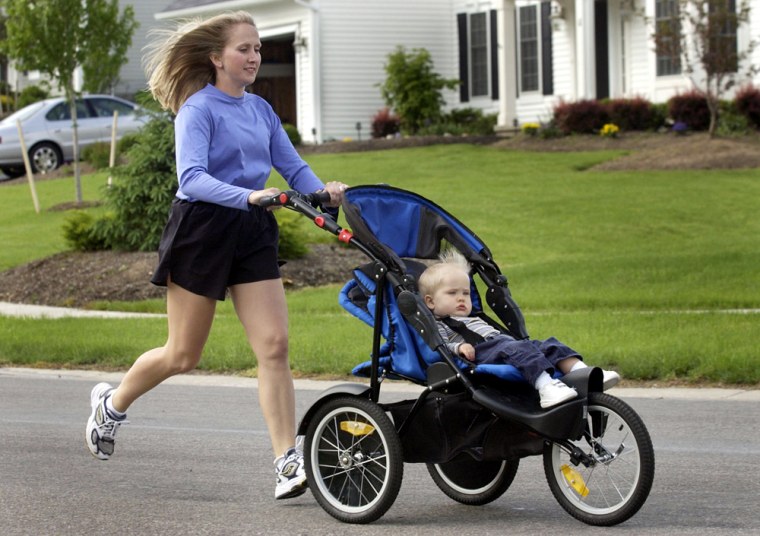The last thing Rachel Pisciotta wanted was to be a couch potato during her pregnancy. So with her doctor’s support, the three-time marathon runner tweaked her workout routine to accommodate her growing belly.
Pisciotta scaled back on her running to avoid overheating, but managed to compete in two 5K races during the first trimester. When the jerky motions of running were too uncomfortable, she switched to brisk walking during the last three months. She also did weight training and exercised on an elliptical trainer.
Not so long ago, many doctors took a conservative approach on recommending physical activity for expectant mothers. There were fears about the unknown effects of exercise and concern that overexertion might cause a miscarriage or harm the fetus.
Rethinking old notions
In the late 1980s, new research forced the medical community to rethink old notions. Scientists found that active pregnant women often had trouble-free pregnancies and did not increase their or their baby’s risk for health problems. Some studies even found that women who exercised regularly endured labor better, although exercise did not shorten the time spent in labor.
Even more recent research has further pointed to the growing benefits of physical activity during pregnancy, most notably the finding that exercise may reduce by half a woman’s risk for a type of diabetes known as gestational diabetes mellitus.
For Pisciotta, who gave birth to son Joseph in April 2003, working out relieved the stress of impending motherhood and made her feel in control of her inevitable weight gain.
“I was terrified that if I went from exercising a lot to doing nothing, I’d blow up to a very large size,” said Pisciotta, who works at the University of Rochester Medical Center in upstate New York.
After her son was born, she took up running again to lose the 38 pounds. A year later, her fitness is close to her pre-pregnancy level and she even ran a half-marathon in May, her first major competition in 13 months.
Revised guidelines
Two years ago, the American College of Obstetricians and Gynecologists revised its guidelines to relax previous restrictions on how much exercise mothers-to-be should get.
Healthy, active women with uncomplicated pregnancies are now encouraged to follow the federal guidelines for adults, which calls for at least 30 minutes of moderate exercise a day several times a week. Women who never regularly worked out, but who want to start during pregnancy should talk to their doctors first.
Fitness centers around the country are increasingly recognizing this change in attitude. Community gyms are adding new exercise programs designed for pregnant and postpartum women. Their popularity has also spurred the opening of specialty gyms that focus on prenatal exercises such as yoga.
Raul Artal, who heads the department of obstetrics, gynecology and women’s health at St. Louis University School of Medicine, noted that pregnancy is a good time to introduce lifestyle changes such as increased exercise to otherwise sedentary women.
“Pregnancy should not be a state of confinement. It’s a unique time for behavior modification,” said Artal, who helped draft the exercise guidelines for expectant mothers.
Despite the boom in fitness, pregnant women are still advised to avoid contact sports like basketball and hockey. Activities such as horseback riding and downhill skiing are also discouraged because of the risk of falling and possible injury.
While swimming is generally safe, expectant mothers are warned against scuba diving because it may create gas bubbles in the fetus’ circulatory system. They should also take into account altitude sickness and avoid activities higher than 6,000 feet.
Fitness experts warn that pregnant women who experience dizziness, vaginal bleeding, or any sign of discomfort should immediately halt their workout.
